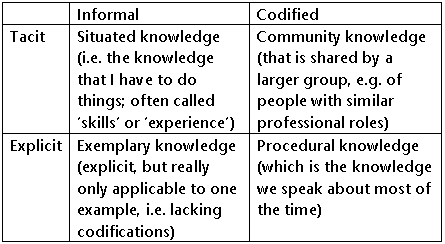Learn more
- Mar 14, 2008
KIWI Project Partners, Pt.5: Logica

Logica is a global IT and management consultancy company with about 39,000 people operating in 36 countries, 750 thereof in Denmark. The KIWI usecase is going to be conducted with Logica Denmark’s Public and Education Dept., which has 140 employees and typically 20 projects running at a time. 10-20% of project resources are used on project management tasks.
Logica already has a whole array of knowledge and project management instruments and supporting processes in place: Process descriptions and project plan templates are made available in a web-based library; project team members have access to required courses and seminars to address arising needs; audits, assessment metrics and project management tools are provided; further assistance comes from project management experts, the project management office and of course through channels of informal collaboration.
Nonetheless, there are challenges, for instance it may happen that knowledge is not shared systematically – even though one project may have a solution that other projects could benefit from. Furthermore, there are several bottle necks limiting the flow of information, in particular in the phase between the completion of one project and the launch of a new one, when previously defined project management practices might potentially get lost.
So the crucial question is: If all these mentioned instruments are in place, but one is still presented with a situation where there is a lack of balance between knowledge creation and knowledge exploitation – what kind of an improvement and in which areas can be expected from using the wiki model for collaboration and knowledge management? What is wiki anyway : just another technology or a new way of thinking? Karsten Jahn (from Aalborg University who are assigned to this usecase as an academic partner) proposed to consider it a philosophy rather than a technology. In his part of the use case introduction, he reported divergent examples on the one hand of people, even in the industry, who think highly of wikis, but who rarely ever contribute to them, and on the other hand of people who dislike wikis, but who use them intensively.
When one is aiming to implement a project and knowledge management tool, one must also be aware of the different types of knowledge that are involved: In the example of project management, as Søren pointed out, it is knowledge that is ‘in the heads of people’ which cannot easily be extracted or transfered. Peter Axel Nielsen from AAU elaborated on this by offering this pattern of four types of knowledge (explanations in parentheses added by myself).
What do you think?
